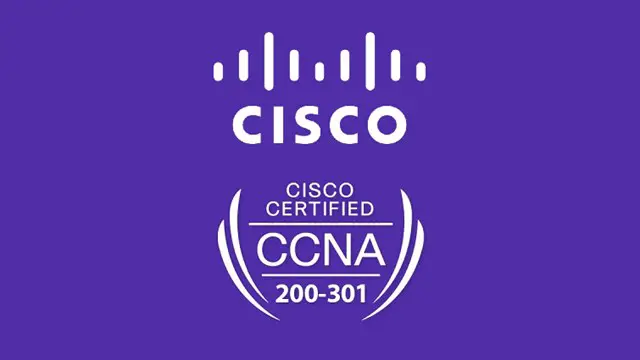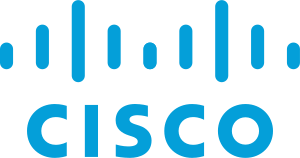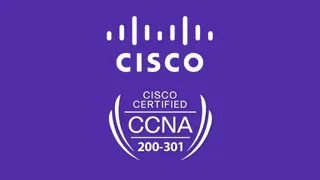
Cisco CCNA 200-301 with Live Lab, Practice Test, and Study Guide
Includes video course material, live lab, practice test, study guide, access to tutors
Hudson
Summary
- Exam(s) / assessment(s) not included in price, and must be purchased separately
- Tutor is available to students
Add to basket or enquire
Overview
***EXAM NOT INCLUDED IN PRICE***
Achieving CCNA certification is the first step in preparing for a career in IT technologies. To earn CCNA certification, you pass one exam that covers a broad range of fundamentals for IT careers, based on the latest networking technologies, software development skills, and job roles.
The newly re-designed CCNA program prepares you for today’s associate-level job roles in IT technologies. Retooled for the latest technologies and job roles, this CCNA training course gives you the foundation you need to take your career in any direction. CCNA certification covers a breadth of topics, including:
- Network fundamentals
- Network access
- IP connectivity
- IP services
- Security fundamentals
- Automation and programmability
Course access period: 12 months online access
Exam included: NO
Certification
Implementing and Administering Cisco Solutions (CCNA)
Course media
Description
What’s included in this course?
This course includes video based learning material, a live lab, Kaplan practice test, and PDF study guide. The official Cisco exam is not included in this course. This can be purchased separately when you are ready to sit the exam.
Course included:
- Cisco CCNA (200-301)
NETWORKING FUNDAMENTALS
- Overview
- Networking Components: Overview
- Networking Components: Routers And Switches
- Networking Components: NGFW And NGIPS
- Networking Components: Cisco DNA Center
- Networking Components: WLCs And Access Points
- Networking Components: Servers And Endpoints
- Networking Topology Architectures: Overview
- Network Topology Architectures: Data Center
- Networking Topology Architectures: WAN
- Networking Topology Architecture: Cloud
- Networking Topology Architectures: SOHO
- Layer 1: Interfaces And Cabling
- Layer 1: Interfaces And Cabling Part 2
- Layer 1: Interfaces And Cabling Part 3
- Identifying Layer 1 Issues
- Identifying Layer 1 Issues Part 2
- Networking Protocols
- Networking Protocols Part 2
- IP Addressing: Overview
- IP Addressing: IPv4 Basics
- IP Addressing: IPv4 Configuration
- IP Addressing: IPv4 Subnetting Review
- IP Addressing: IPv4 Subnetting Class C
- IP Address: IPv4 Subnetting Class B
- IP Addressing: IPv4 Subnetting Class A
- IP Addressing: VLSM
- IP Addressing: IPv6 Basics And Address Types
- IP Addressing: IPv6 Basics And Address Types Pt.2
- IP Addressing: IPv6 Configuration
- IP Addressing: Client OS
- Virtualization Fundamentals
- Virtualization Fundamentals Part 2
NETWORK ACCESS
- Network Access Overview
- Cisco Switching: Basic Concepts
- Cisco Switching: VLAN Configurations
- Cisco Switch: VLAN Configurations Part 2
- Cisco Switching: Interswitch Connectivity
- Cisco Switching: Interswitch Connectivity Part 2
- Cisco Switching: L2 Discovery Protocols
- Cisco Switching: L2 Discovery Protocols Part 2
- Cisco Switching: L2 Etherchannel Configuration
- Cisco Switching: L2 Etherchannel Config Pt.2
- Cisco Switching: L3 Etherchannel Configuration
- Cisco Switching: Spanning Tree Protocol Basics
- Cisco Switching: STP Operations
- Cisco Switching: STP Configuring RPVSTplus
- Cisco Switching: STP Portfast And BPDUguard
- Cisco Wireless Basics
- Cisco Wireless Architecture
- Cisco WLAN Components
- Cisco WLC Configuration
- Cisco Wireless Management Access
- IP CONNECTIVITY
- IP Connectivity: Overview
- IP Connectivity: Routing Basics
- IP Connectivity: IPv4 Static Default, Net Routes
- IP Connectivity: IPv4 Static Host, Floating Routes
- IP Connectivity: IPv6 Static Default, Net Routes
- IP Connectivity: IPv6 Static Host, Floating Routes
- IP Connectivity: Dynamic Routing Basics
- IP Connectivity: Single Area OSPFv2
- IP Connectivity: Single Area OSPFv2 Part 2
- IP Connectivity: First Hop Redundancy Protocols
- IP Connectivity: First Hop Redundancy Proto Pt2
IP SERVICES
- IP Services Overview
- IP Services: Configuring, Verifying NAT
- IP Services: Configuring, Verifying NAT Pt.2
- IP Services: Configuring NTP
- IP Services: DNS And DHCP
- IP Services: DNS And DHCP Part 2
- IP Services: Configuring SNMP
- IP Services: Understanding Syslog
- IP Services: Understanding PHB For QoS
- IP Services: Configuring SSH
- IP Services: Using FTP And TFTP
- SECURITY FUNDAMENTALS
- Security Fundamentals Overview
- Key Security Concepts
- Security Program Components
- Security Password Policy Components
- Intro To AAA Security
- Understanding VPN Types
- Configuring And Verifying Standard ACLs
- Configuring And Verifying Extended ACLs
- Configuring And Verifying Named ACLs
- Configuring Port Security-Static
- Configuring Port Security-Sticky
- Configuring DHCP Snooping And DAI
AUTOMATION AND PROGRAMMABILITY
- Automation And Programmability Overview
- Intro To Network Programmability
- Intro To SDN Architectures
- Intro To API Concepts
- Intro To REST-Based APIs
- Intro To Cisco DNA Center
- Intro To Config Management Utilities
- Interpret JSON Encoded Data
Live lab included:
- Cisco CCNA (200-301)
Practice test included:
- Cisco CCNA (200-301)
How is the course taught?
This is an online and self-paced course, meaning you can do it in your own home, in your own time, at your own pace and best of all… any where in the world, providing you have access to a laptop, PC or desktop computer, and an internet connection. Each lesson is pre-recorded allowing you to pause, fast-forward, skip sections, or go back to another lesson if you need to. The lessons are multi-media based, which means video and audio are used to teach the lessons. Your tutor will PowerPoint slides, illustrations, diagrams and give demonstrations to teach each class. Most lessons are also interactive though the live labs, prompting the learner to participate. This might involve answering on-screen questions, and participating in tasks.
Who is this course for?
All you need is an internet connection and a device, such as a smart phone, tablet, laptop or PC, and an internet connection. To get the most out of the course, we recommend you access it using either a laptop or desktop computer through Google Chrome.
Requirements
There are no prerequisites to enrol on this course.
Career path
- Cisco Network Engineer
- Cisco Network Specialist
- Cisco Network Analyst
- Cisco Network Consultant
- Network Engineer
- Network Field Engineer
- Network Deployment Engineer
- Network Operations Engineer
- Network Support Engineer
- Network Operations Center Engineer
- Network Consultant
- Network Technician
- Data Centre Manager
- IT Manager
- IT Consultant
- IT Support Technician
- Systems Administrator
Questions and answers
Reviews
Currently there are no reviews for this course. Be the first to leave a review.
Legal information
This course is advertised on reed.co.uk by the Course Provider, whose terms and conditions apply. Purchases are made directly from the Course Provider, and as such, content and materials are supplied by the Course Provider directly. Reed is acting as agent and not reseller in relation to this course. Reed's only responsibility is to facilitate your payment for the course. It is your responsibility to review and agree to the Course Provider's terms and conditions and satisfy yourself as to the suitability of the course you intend to purchase. Reed will not have any responsibility for the content of the course and/or associated materials.



